

- Phone
- Email puppypetite@aol.com
-
Address
8002 17th Ave, Brooklyn NY 11214
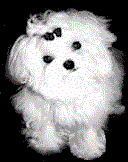
How To Socialize A Puppy
Bringing home a new puppy is a joyous occasion, filled with fluffy cuddles, wet nose kisses, and a whole lot of potty training. Yet, amidst the initial frenzy of housebreaking and chew toy acquisition, there's a crucial aspect of your puppy's development that shouldn't be overlooked - socialization.
Puppy socialization is about introducing your little furball to the big, wide world in a safe and positive manner. It's more than just play dates at the dog park; it's a planned approach to helping your puppy become a well-rounded, confident, and happy adult dog.
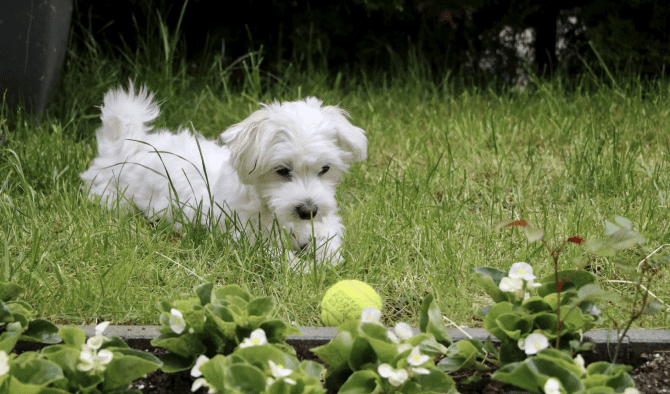

Why Is Puppy Socialization Important?
The early weeks and months of a puppy's life are a critical period for learning. Up until about 16 weeks of age, puppies are sponges for new experiences and soak up the world around them. This developmental stage, often referred to as the "sensitive period for socialization," lays the groundwork for how your dog will view the world and respond to it as an adult.
Undergoing proper socialization process has a host of benefits, spanning from behavior to health. Well-socialized puppies are less likely to develop anxiety, aggression, or phobias in later life. Here are some key reasons why early socialization is essential:
- Behavioral Development: Positive interactions during socialization build the foundation for good behavior, which includes learning to be gentle with humans and understanding basic commands.
- Health: A confident dog is often a healthier dog, experiencing less stress and the associated health issues.
- Longevity: Well-adjusted dogs are more likely to keep their homes, reducing their risk of being surrendered to shelters or euthanized due to behavior problems.
How to Socialize A Puppy: A Comprehensive Guide in Puppy Socialization
Effective socialization is an art-with a splash of science-that balances a systematic plan with your puppy's individual pace. Here's how you can approach this invaluable process:
Develop a Socialization Plan
Start with a list of all the experiences you want to expose your puppy to and prioritize them based on importance and availability. Your vet can provide guidance on health considerations and the timing of socialization activities.
Be Present and Proactive
Your presence is as important as the experiences themselves. Your puppy needs to learn that you are a source of comfort and safety in new or potentially scary situations. That means being actively engaged, not just present, during socialization outings.
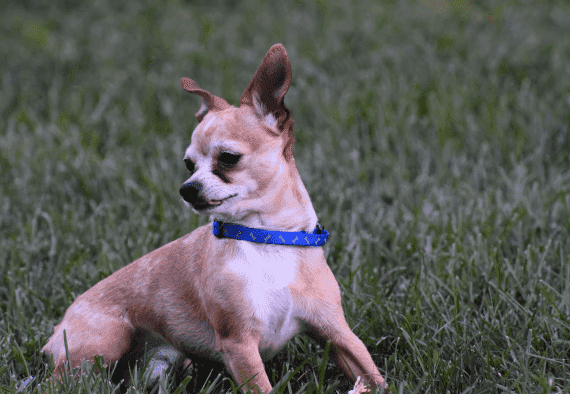
Gradual Exposure
Take baby steps. Introduce your pup to new experiences in small doses, gradually increasing the intensity or duration as they become more comfortable. For example, if loud noises are on the agenda, start with the sound of a dropped book from a distance and sequentially decrease the distance.
Conditioned Learning
This classic behavioral approach champions associating new experiences with something your pup naturally enjoys, like treats or play. Over time, your puppy will come to associate these new experiences positively.
Explore a Training Class
Professional obedience or puppy training classes can be excellent places for socialization. Not only will your puppy learn valuable commands, but they'll also interact with other dogs and people in a controlled environment.
Understand the Individual
Every puppy is different. One may take to water without hesitation while another may require gentle exposure over several weeks. Pay close attention to your pup's body language and adjust your approach accordingly. Positive socialization isn't about checking off boxes; it's about ensuring your puppy is comfortable and happy.
Be Consistent
Daily interactions with different people, animals, and environments are key. Establish a consistent routine of socialization to reinforce what your puppy is learning.
Use Positive Reinforcement
Praise, treats, and play are powerful tools for teaching your puppy what you expect from them. Remember to always reinforce good behavior with something that your pup values.
Consider a Playgroup
Puppy playgroups can be a great way for your pup to learn from other dogs and to exert some of their abundant puppy energy in a safe setting.
How to Create a Puppy-Friendly Environment
The first step in your socialization mission is to create an environment where your puppy feels safe and where positive experience rule. Here's how to set the stage:
- Safe Boundaries - Offer a safe space where your pup can play, rest, and feel comfortable. This could be a corner with their bed, a partitioned area of the room, or a designated room if possible. Minimalist can sometimes be best, it prevents a restless search for their perfect hiding spot.
- Positive Engagement - Always associate your presence with good things. Speak softly, play gently, and ensure that your pup associates any encounters with you as delightful. Regular gentle petting, especially when paired with treats, will also help your pup build trust and confidence in you.
- Regular Schedule - Structure is calming for puppies. Try to keep feeding times, walks, and play times consistent. This sets up an expectation which can be very comforting for a pup navigating a new world.
Pet Exposure
- Gradual Exposure - Once your pup is comfortable in their home space, it's time to gradually expose them to new stimuli.
- New Objects - Introduce a variety of objects - like umbrellas, brooms, and boxes - around the home and allow your pup to investigate them at their own pace. Be present but not overly involved, granting your pup the time they need to process and understand this new 'normal'.
- Different Surfaces - Take your pup on short walks on different surfaces - grass, concrete, carpet - one at a time. Act as if it's a grand adventure, praising and rewarding them for each brave step they take. This helps prevent a fear of the unknown underfoot and creates positive associations with different surfaces.
- Various Sights and Sounds - Gradually introduce common household sounds like the vacuum and the dishwasher. Make sure your puppy is always associated with something enjoyable, such as playtime or a treat. You can also use sound desensitization apps to add a layer of safety to the process.
Meeting People and Other Pets
Socialization doesn't mean overwhelming your pup with new experiences. It's about positive, controlled encounters that gradually expand your puppy's circle of comfort.
- Friends and Family - Invite friends and family over to meet your pup. Ensure that these initial interactions are gentle and calming, and that no one is putting too much focus on your puppy, which can be intimidating. Encourage visitors to crouch down to their level and offer them treats to create positive associations.
- Other Pets - If you have other pets, allow them to interact in a neutral space and at their own pace. Make sure that the interactions are closely monitored, with gentle, positive reinforcement for both animals.
- New People and Places - Once your puppy has had their initial vaccinations, you can start broadening their horizons. However, always ensure that any new places and people are clean and safe to avoid diseases and negative experiences.
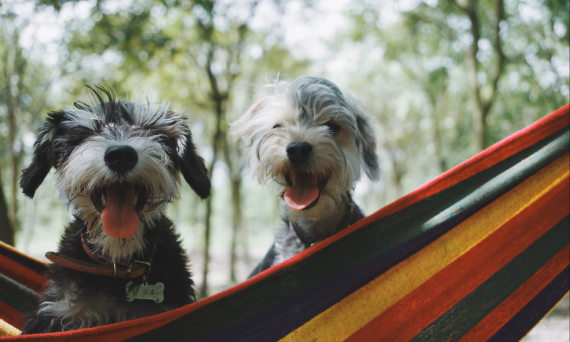
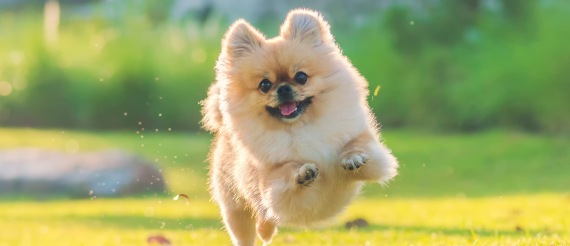
Socializing with Other Puppies
Interactions with other puppies are crucial for social development. They learn a great deal about acceptable social behavior from their peers.
- Puppy Classes - Enrolling in puppy socialization classes is an ideal way for your furry friend to interact with dogs of similar age and learn social cues. Under the watchful eye of a professional trainer, your pup can explore their playful boundaries in a safe and structured environment.
- Off-Leash Encounters - Once your pup is vaccinated and the vet gives the green light, you can organize playdates with other vaccinated, friendly dogs in a controlled, familiar setting. Observe your puppy's body language to ensure they're having fun and learning positive behaviors.
Handling New Experiences
Even with the best preparation, new experiences can be overwhelming for a young pup. Here's how to make it easier:
- Car Rides - Introduce your puppy to short car rides in a secure carrier or harness system. Ensure the car is not too warm, and take frequent, fun breaks at favorable destinations.
- Grooming and Handling - Get your puppy used to being groomed, bathed, and handled. Start by gently touching different parts of their body, eventually progressing to actual grooming and care routines. Make these sessions as fun and positive as possible with treats and toys.
- Vet and Professional Care - Make visits to the vet and any professional groomers or trainers as friendly as possible. Even if it means playing in the waiting area before encounters, it forms a positive association with these necessary places and people.
Ongoing Socialization and Dog Training
The critical period of socialization might be over, but the work isn't done. Continue to expose your puppy to new things, places, and people throughout their life.
- Consistent Training - Incorporate positive reinforcement training into your everyday routines. Simple commands like sit, stay, and come can be taught using treats and play, creating a strong bond between you and your pup.
- Varied Environments - Take your dog on regular trips to new environments. This can be anywhere dog parks to pet-friendly stores. These experiences help maintain the adaptability and resilience developed during the socialization phase.
- Daily Encounters - Make socialization a daily part of your dog's life. A walk around the block can include a greeting to a neighbor or a visit to a local coffee shop patio. Keep these interactions short and sweet, always ending on a positive note.
Long-Term Benefits
The investment you make in socializing your puppy will pay off in numerous ways. A well-socialized dog is confident, calm, and capable of understanding and adapting to their environment. They are generally more relaxed around people and other animals and are better equipped to handle emotional stressors and changes in their routine. In short, they make better companions and lead fuller, happier lives.
In summary, the formula for successful puppy socialization is creating a supportive and positive environment, gradually introducing them to new experiences, providing gentle exposure to people and other pets, and continuing to foster learning throughout their lives. Be patient, calm, and most of all, enjoy the process. The reward of a well-socialized and happy pup is one of life's greatest joys.
